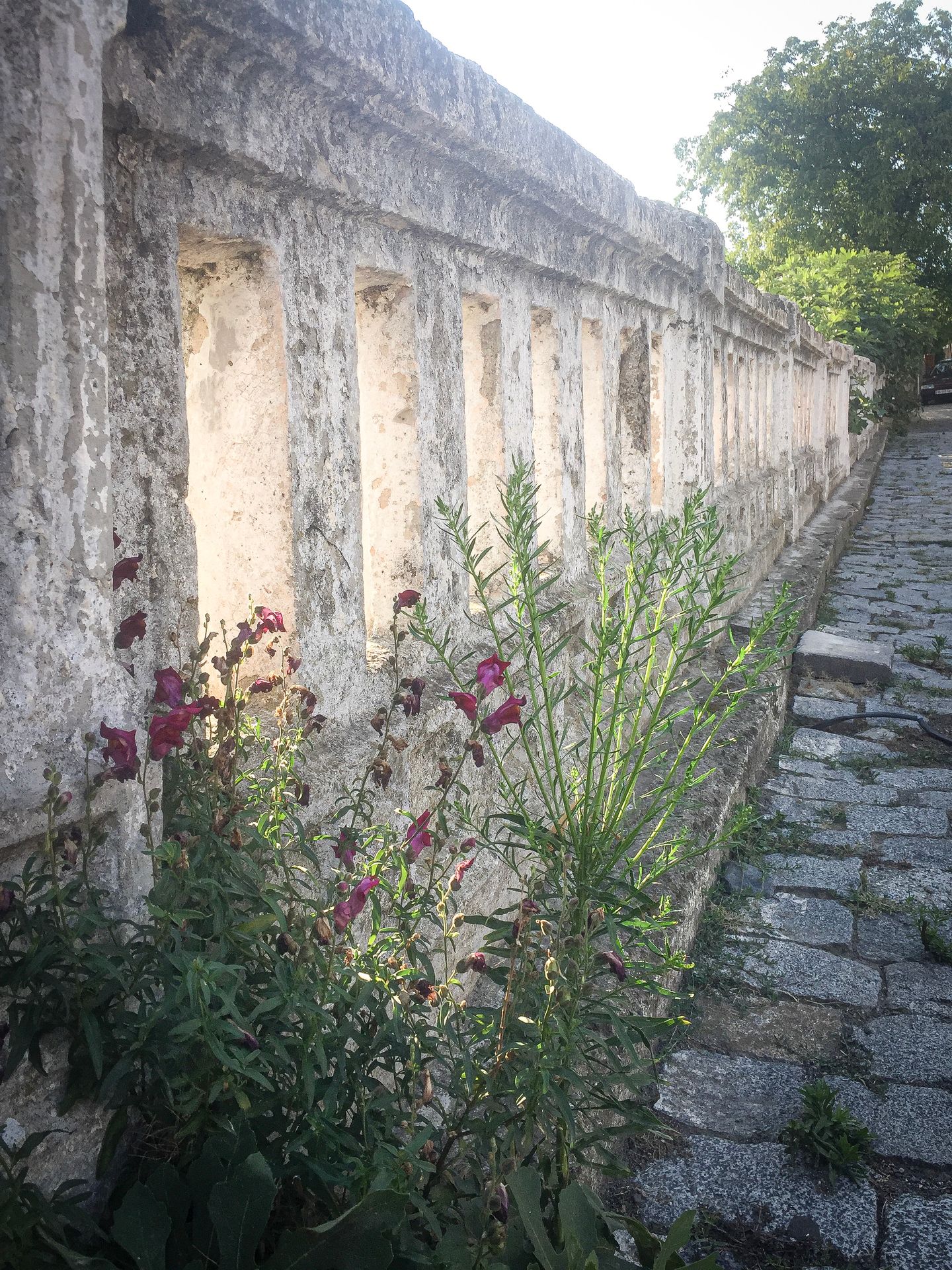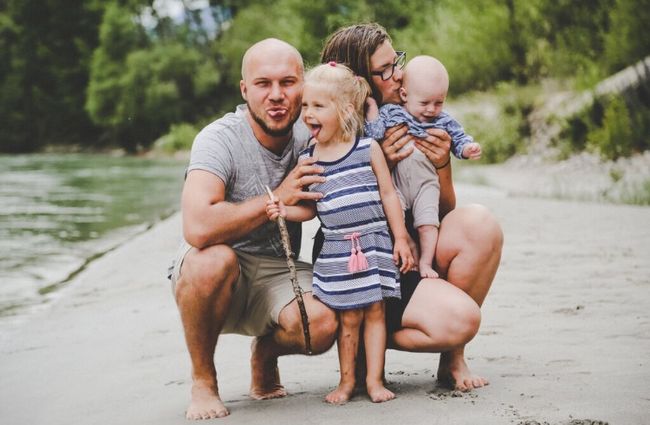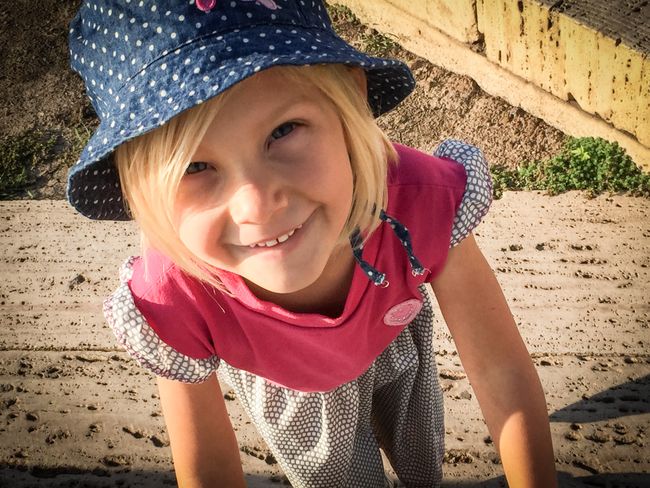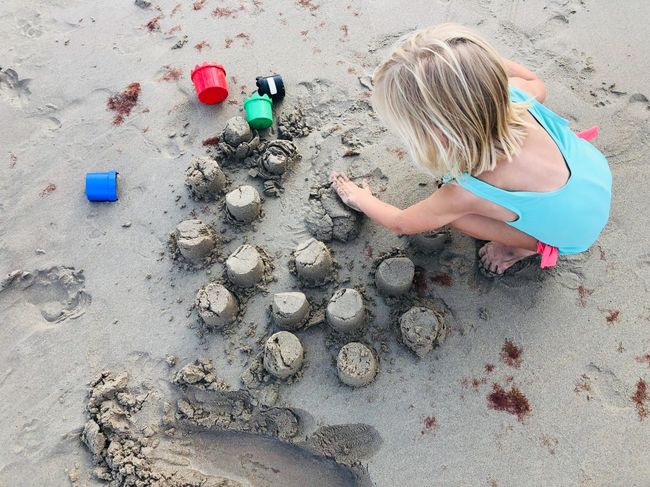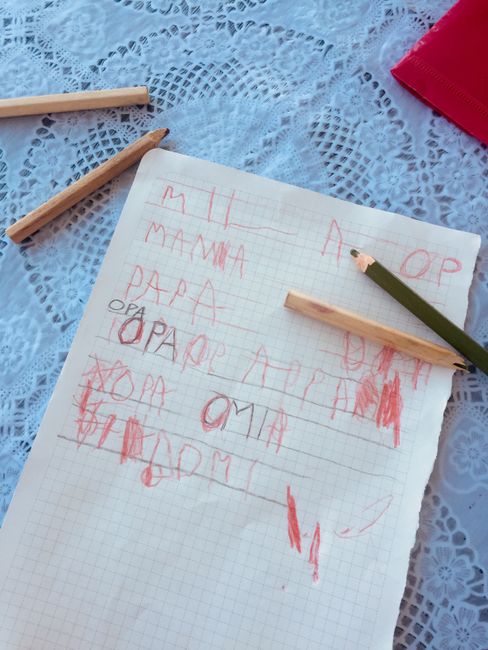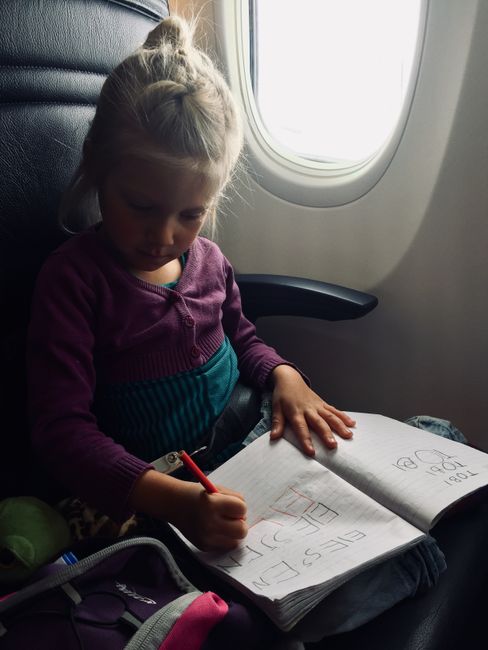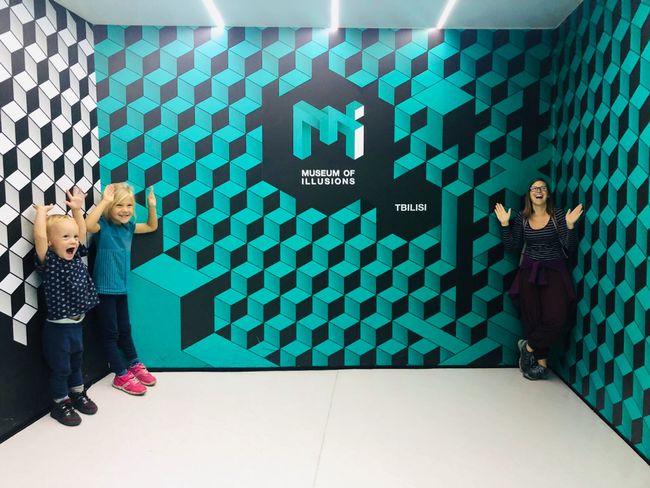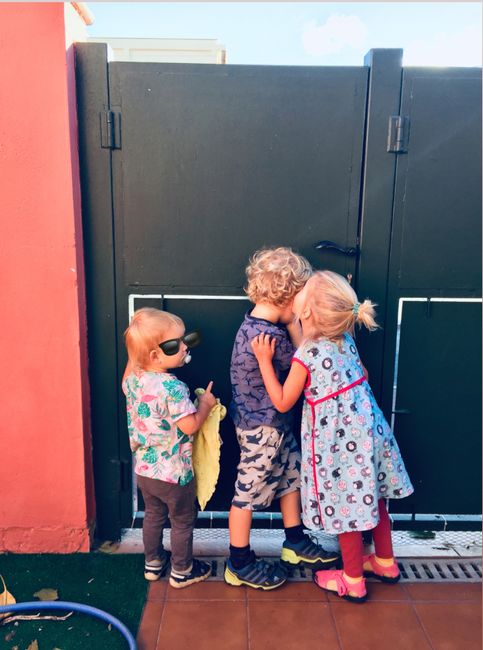Schule im Rucksack
Објављено: 19.12.2019
Пријавите се на билтен
When we started our journey in July 2019, we did it at a strategic time: exactly when our oldest daughter became of school age. Mila is only 4 years old, but due to the kindergarten obligation in Switzerland and the fact that she has her birthday in the summer, she would have started her first year as a obligated child just a month after her fourth birthday with a fancy kindergarten backpack and big eyes.
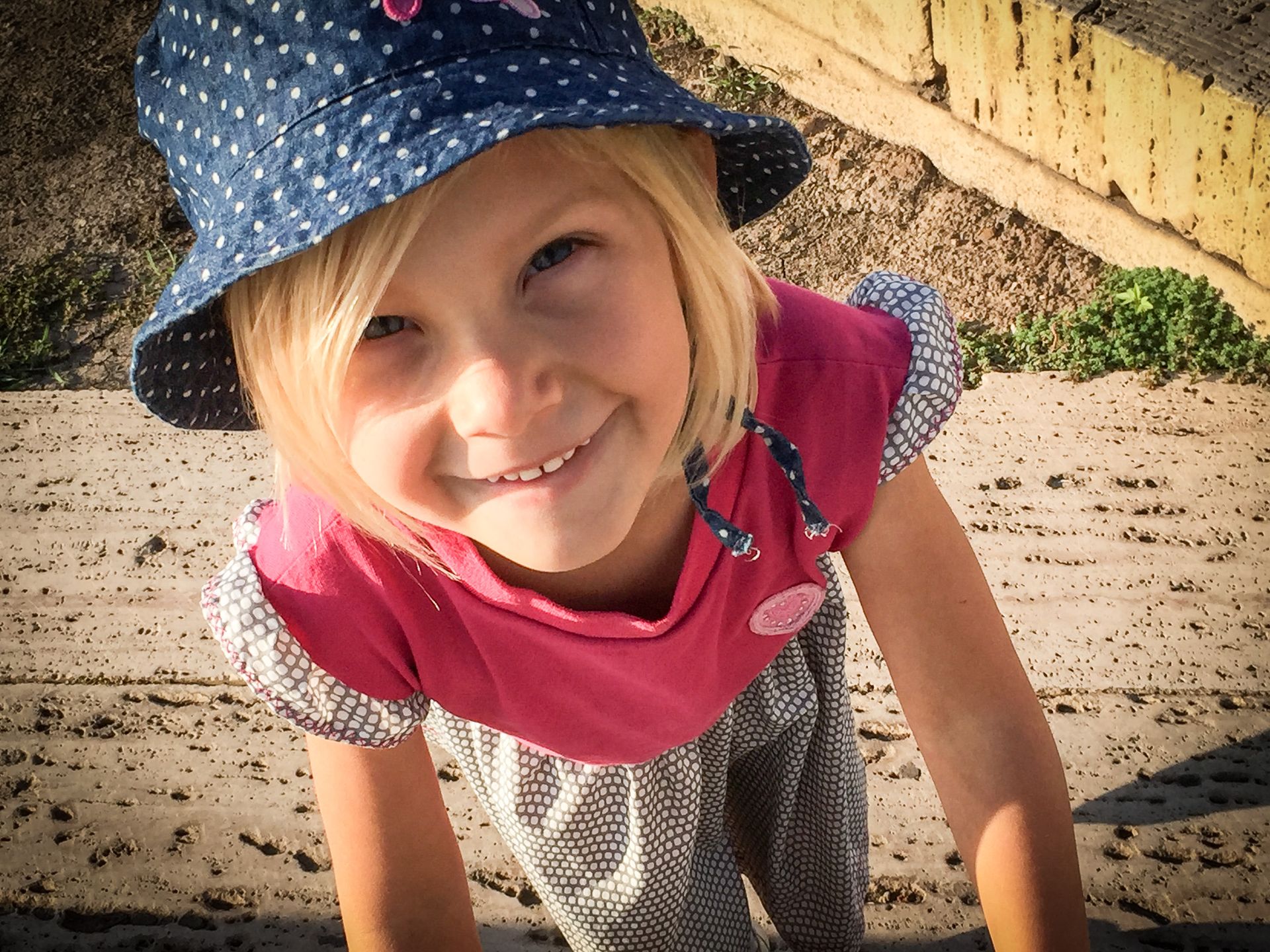
We are not opponents of kindergarten or school. Our children enjoy being with other people, acting in groups with children, and learning new things. We also trust them both to go through school with all the good and bad times in their lives. But somehow we realized that as a family we are not yet ready. We enjoy our freedoms. And so we took the opportunity - before our children reach an age where they can't escape so easily - and went on our way.
Of course, Mila thought that was really stupid. Because some of her friends were now going to kindergarten, which made her a little jealous. We offered our daughter the alternative of doing school on the go. And this idea saved everything. All it took was a notebook and a name. Not Adventure School, not "School of Life". No. Mila School, the freshly baptized first grader wished for it.
Actually, it's a great thing that children learn intuitively. It is in their blood to want to understand things, to imitate manual actions, and to dismantle things. And they package all of this as play and have fun with it. It's beyond question for us that children learn independently. We see our role as parents in accompanying them in this process and giving them answers or encouraging them to stick with a project. They bring everything else with them.
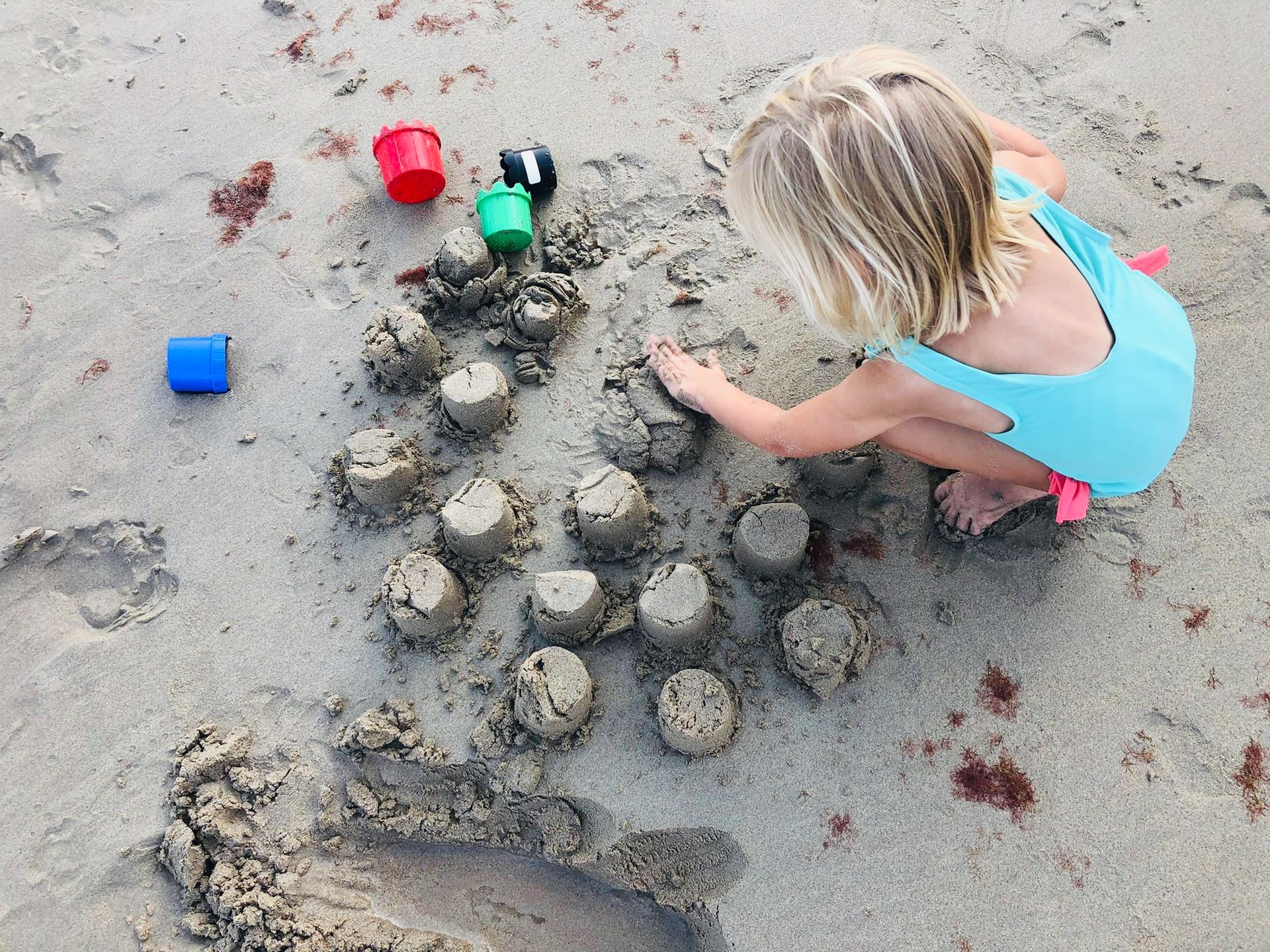
In our opinion, school is not necessary in this learning process - except for the social component. Being able to get along in a group, making friends, solving problems in a team... for such important skills, kindergarten or school can be very important. And that's where Mila's biggest learning field lies.
And so we started with our curriculum... and didn't do much different from usual.
When Mila asked, "Why are there waves?" one of us (usually the scientific dad) gave her an answer.
If Mila wanted to do some crafts, we provided her with materials somehow and encouraged her to do so.
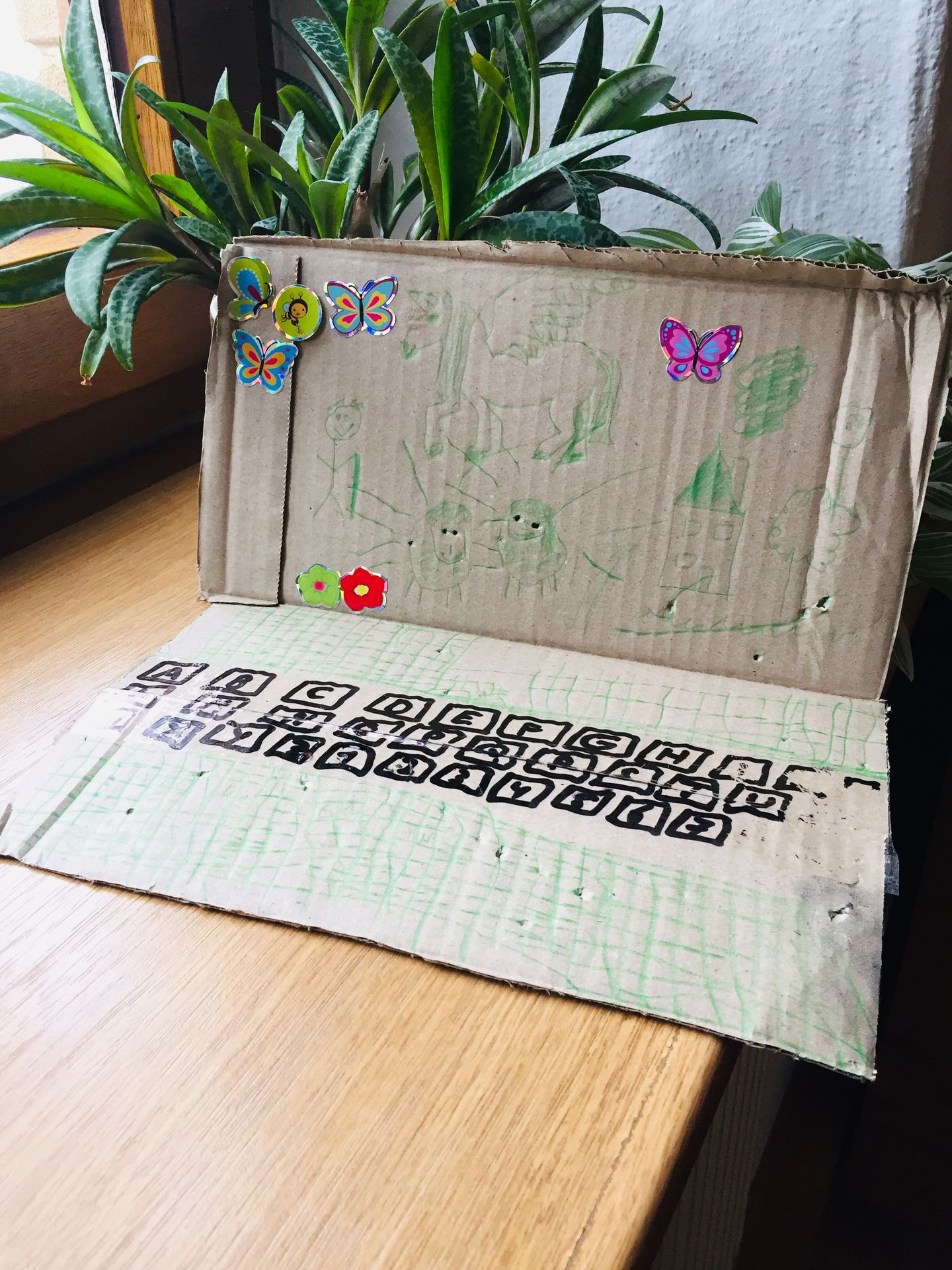
When we went hiking (quite often), we told long stories, composed songs, and admired nature.
If Mila wanted to climb, we let her.
And she did.
The difference from our family life before is that now we have the time and leisure for it. Our life at home was so full and we were so tired that the constant questioning (Why...?) often annoyed us. On the trip, we don't have much else to do - and can give this role more space in everyday life. We simply do the things that bring us joy - walking around, taking photos, occasionally going to the museum, interacting with people - and we bring our children along. And they learn a lot in the process.

Motivated, Mila wanted to learn directly what all first graders learn: writing. And so she learned to write all the important names in her environment. She was quite persistent. Sometimes she writes them backwards, sometimes with very creatively illegible letters, but she writes. When she meets a new person or wants to give someone a gift, she asks how to spell their name. And so she learns letter by letter.
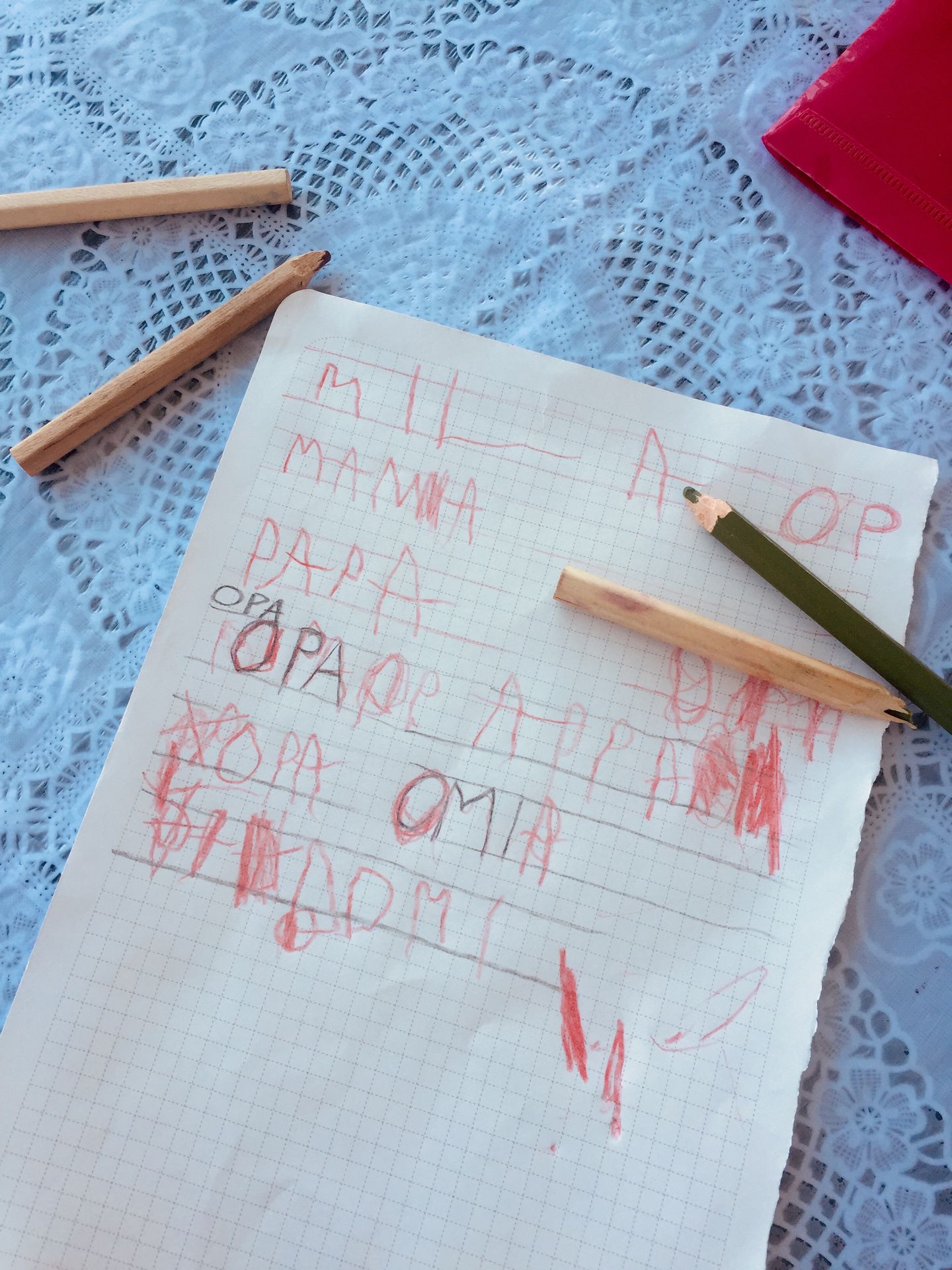
This part of learning, which takes place with a pen in hand, hunched over a notebook, only takes up a minimal part of our life as a nomadic family. Most of the time, our children occupy themselves very well, play with whatever they can find, and don't need us - except sometimes. Once, Mila had the idea that she wanted to play grocery store. She built a supermarket out of a game board and sold tissues, stones, and toys. I showed her how to place coins under a piece of paper, scratch the engraving with a pen, and then cut out this new paper coin. She hoarded her new treasure for a long time. And our role was to stroll to the little supermarket regularly and do our weekly shopping for stones.
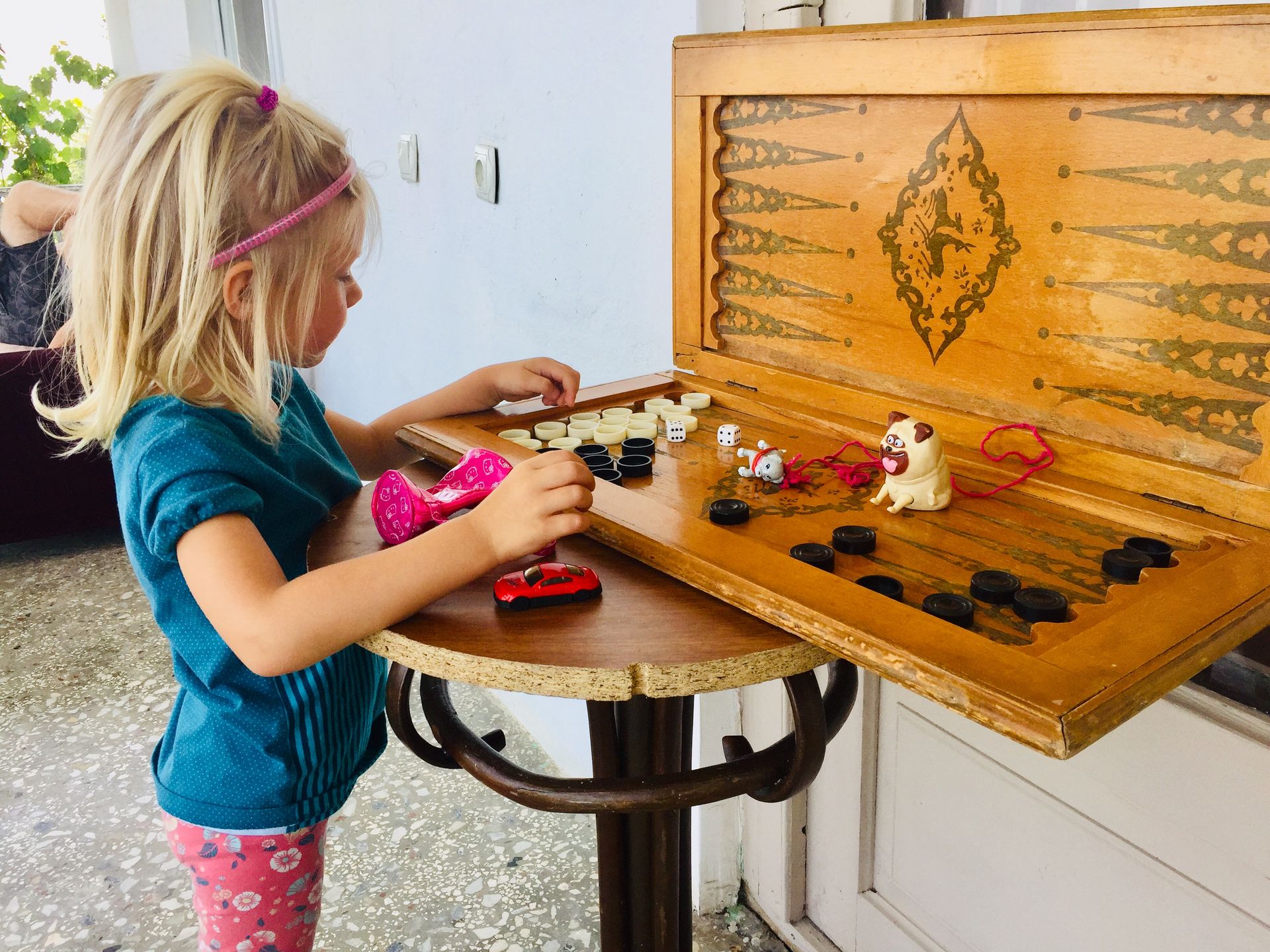
As a family, we have also discovered something new - children's museums. Sometimes they are funhouses, sometimes hands-on physics.

Mila particularly liked the children's museum in Dublin, because there was a supermarket in a dimension for small people where she could check out and shop on her own. She had a lot of fun with that - and we all liked it.
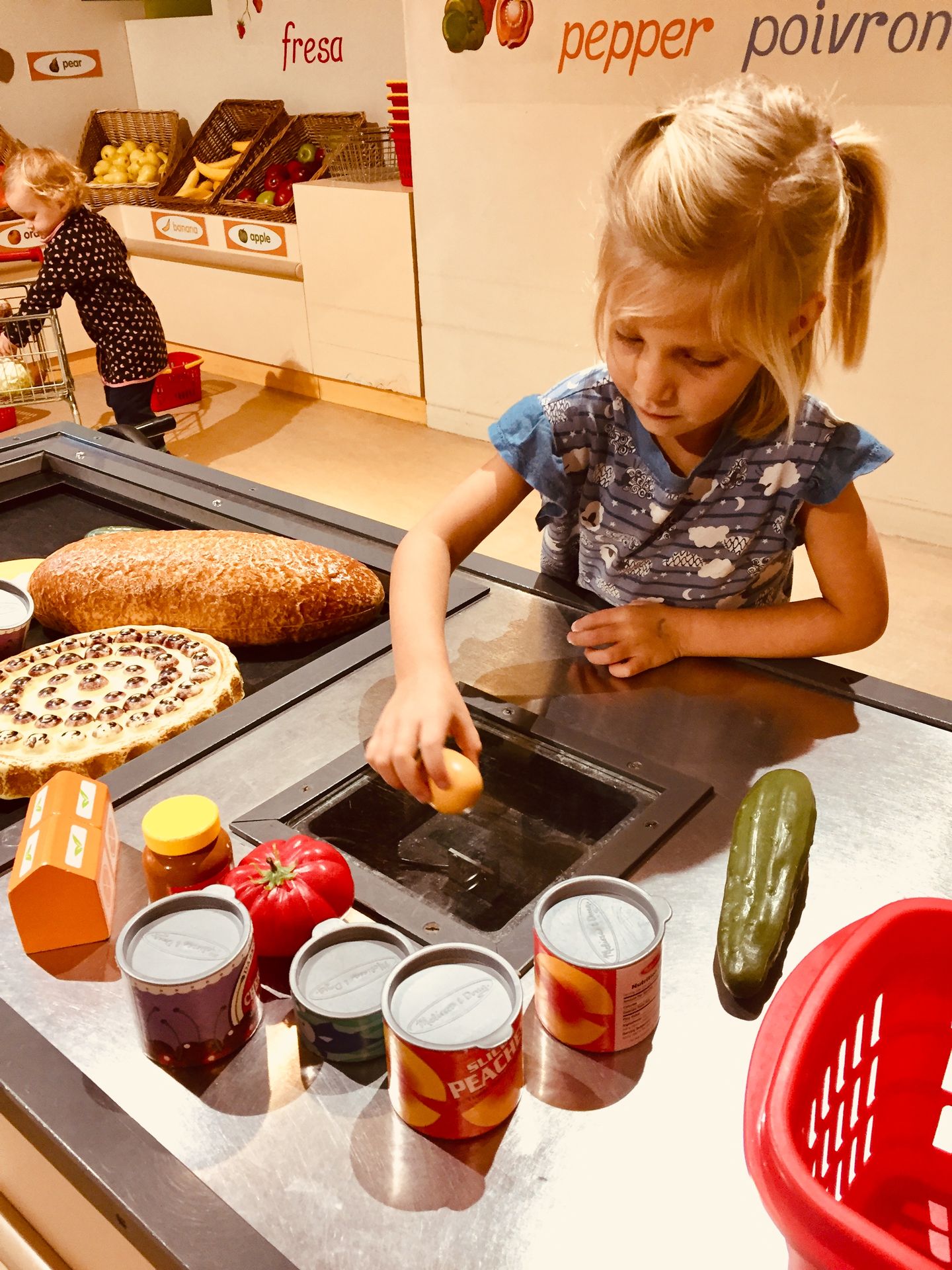
And so our two kids learn to argue and compromise, to cut and climb. To understand the world. And I'm still not sure if they learn different things than at home just because we happen to be traveling. Well, nature is a little different everywhere, and so are people, but somehow it doesn't seem so important.
However, it does have a big impact on Mila - she has left her friends and her language behind. When she went to the playground in Georgia or Oman, she couldn't start a conversation about unicorns. And no role-playing games. What she can do is play soccer or hide and seek. And Mila often finds that stupid.

Our oldest daughter often suffered from this. We noticed it because she talked about her friends in Switzerland very often. And because she was often sad after we visited a playground. We tried to accompany her as calmly as possible, to emphasize small encounters, and to help her with language. Mila proudly presents her phrases in English, Georgian, and Russian.
The second part of our journey was then like an answer to our prayers: not only did we meet family and friends and Mila had plenty of opportunities to play, but we also lived with and among other families for several weeks. And there she could practice exactly what had been lacking in the preceding months: negotiating with peers, finding games, resolving disputes, and sharing everyday life. More than she would have to do at every play date or kindergarten morning.
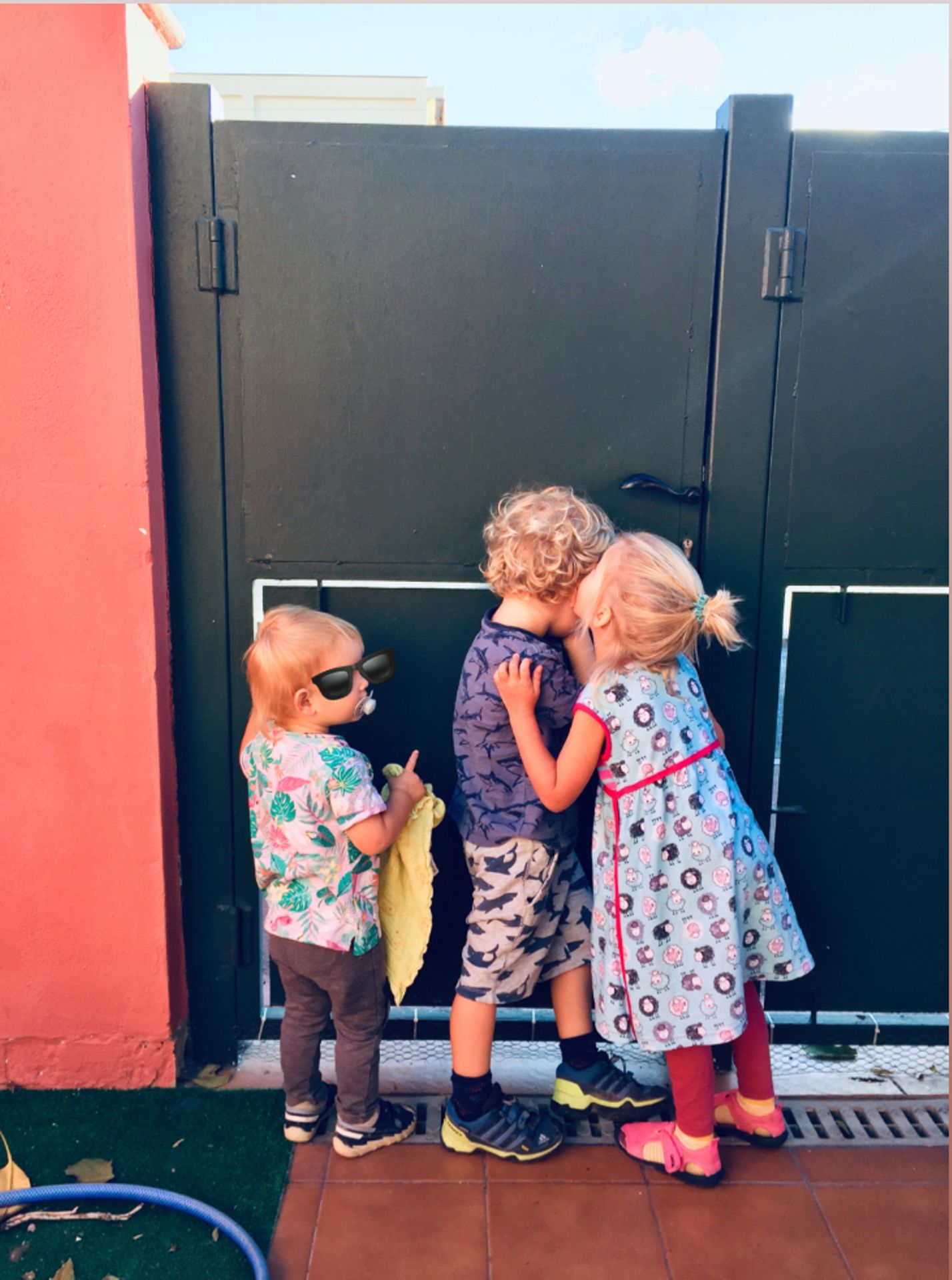
We continue traveling and we all go to school. We learn who we are, who we are with others, and what we are good at and what we are not yet good at. Our next leg of the journey takes us to Costa Rica. There we want to stay in one place a little longer to learn Spanish. If it works out, we also want to give Mila the opportunity to learn Spanish with other children. So that she can talk on the playground too. About unicorns and other important things.

Mila, when you've learned all the letters and read this: we hope you'll want to do Mila School again.
Пријавите се на билтен
Одговор
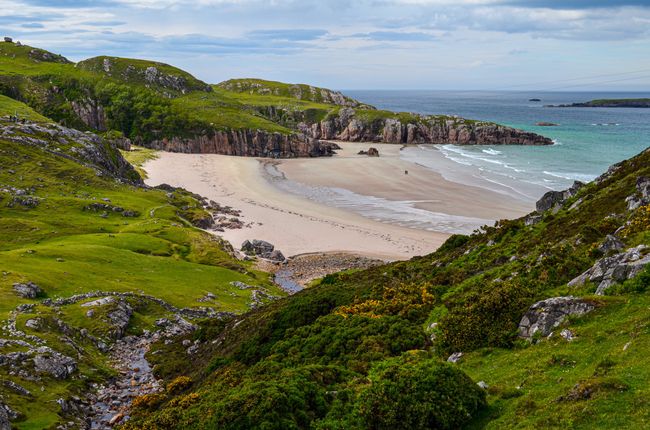
Извештаји о путовањима Велика Британија
